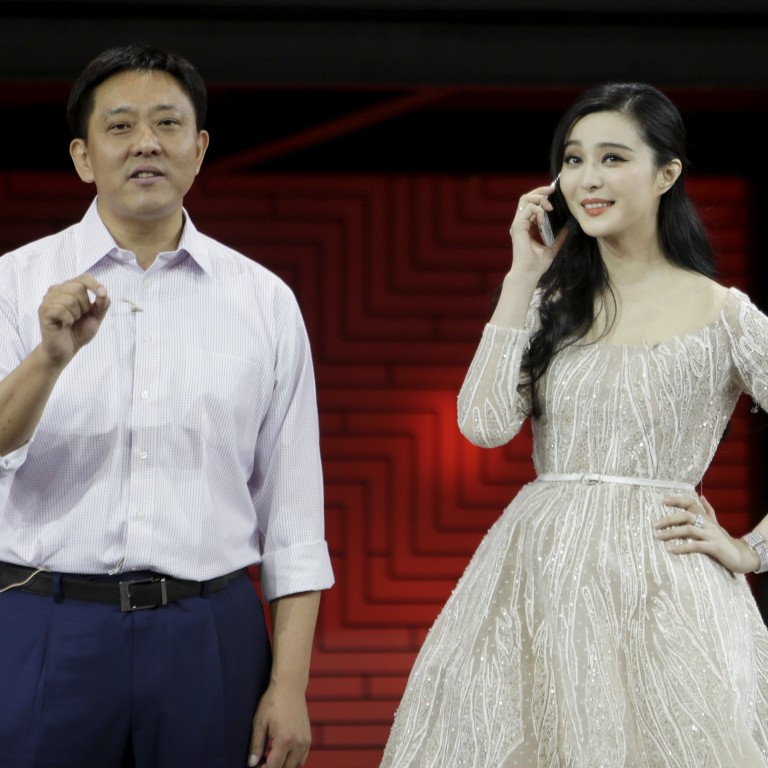
Lenovo unveils new smartphone, smartwatch and fitness tracking shoes in Beijing
Lenovo Group, the world's largest personal computer supplier, unveiled on Wednesday new advances in smart mobile devices that could help drive the company's growth in the consumer electronics market.
At an event in Beijing, the company demonstrated prototypes of a smartwatch with a so-called virtual display that allows users to see images more than 20 times larger than the watch face and "smart shoes", which display a person’s mood on its built-in screens, as well as track and analyse fitness data.
In addition, Lenovo introduced a smartphone with a built-in laser projector, infrared motion detector and high-performance algorithms that opens up a new range of interactions for users.
"Lenovo has a unique position in our industry because we can deliver the devices, smart connectivity and infrastructure required to create a great user experience and satisfy real user needs," chairman and chief executive Yang Yuanqing said at the firm's inaugural Lenovo Tech World event in Beijing on Wednesday.
Yang said last week in Hong Kong that the company would see "a new wave of growth" as it focused on "personalisation and connectivity to networks, device to device and cloud services”.
While the Apple Watch and a range of new smartwatches in the market are attracting users because of their convenience in providing information at a glance, these devices have small displays that make it difficult to display anything more beyond instant updates.
Lenovo is looking to fix that with "Magic Display", which provides a main display that looks like a traditional mechanical watch and another display on the wristband.
The second display uses optical reflection to create a virtual image that is more than 20 times larger than the watch face display. Users can read a map, view photos or even watch a video on the second display.
"It gives users large enough visuals and immersive experiences, unlike smartwatches of today," Lenovo chief technology officer Peter Hortensius said.
Lenovo first entered the nascent smart wearable devices market in July last year with the launch of two internet-ready “smart glass” models. The industrial-focused M100 smart glass was designed with US firm Vuzix, while the so-called “new glass” model was designed with a company called Ceyes and targeted for Chinese consumers.
Technology research firm IHS has forecast global shipments of wearables to reach 130.7 million units by 2018, up from 51.2 million in 2013.This market comprises five categories: military, industrial, infotainment, fitness and health care.
Lenovo's smart shoes concept is part of the company's foray into the growing "internet of things" (IOT) market. Apart from displaying a person’s mood on a screen, the concept smart shoes monitor and analyse fitness data, including heart beats and caloric consumption, as well as providing maps and directions to places when data is accessed on a smartphone.
The smart shoes concept fits into Lenovo’s IoT cloud strategy to build an "ecosystem" that includes open application developer platform, innovation incubator with third-party hardware providers and cloud services infrastructure.
Lenovo chief financial officer Wong Wai-ming said the smart shoes and smartwatch concept products represent valuable intellectual property that the company can leverage with strategic partners in those market segments.
Research firm IDC has forecast the number of units, or “things”, connected in the Asia-Pacific, excluding Japan, to reach 8.6 billion by 2020, from an estimated 3.1 billion this year.
Cloud services enable consumers to buy, lease, sell or distribute software and other digital resources online, just like electricity from a power grid. These resources are hosted and managed in data centres.
Yang said that Lenovo is determined to add more functions to smartphones. The company's "Smart Cast" concept smartphone is built with a miniature laser projector, infrared motion detector and high-performance algorithms that enable users to project a large virtual touchscreen onto a table and work with specific productivity apps, such as a calculator or PowerPoint editing system.
Users can also watch videos, give a presentation or even play games on a wall using the projector.
Yang used the smartphone's projector to display a full-size music sheet for renowned Chinese pianist Lang Lang, who played for the Tech World audience.



